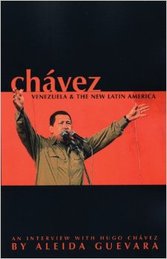Communiqué of the Community of Latin America and Caribbean States
in solidarity with the Bolivarian Republic of Venezuela
March 26, 2015
Translated and edited by Charles McKelvey.
Editor's note. The Community of Latin American and Caribbean States was established at the Latin American Caribbean Unity Summit in Mexico in 2010. It consists of the governments of the 33 nations of Latin America and the Caribbean. The presidency rotates annually, and the first five presidencies have been held by Venezuela, Chile, Cuba, Costa Rica and Ecuador, its president for 2015.
CELAC is an alternative to the Organization of American States (OAS), established in 1948 as a component of the Pan-American project of the United States (see “Pan-Americanism and OAS” blog post of 10/2/2013). The formation of CELAC is an indication of the new political reality that has emerged in Latin America during the past fifteen years, in that it brings together all of the nations of Latin America and the Caribbean, excluding the two North American imperialist powers, the United States and Canada. Whereas the United States in 1961 was able to attain the expulsion of socialist Cuba from the OAS as part of its policy of isolating Cuba, today Cuba is playing a leadership role in CELAC, and it is the United States that is isolated from Latin America, universally condemned for its blockade of Cuba.
The Community of Latin American and Caribbean States (CELAC for its initials in Spanish) expresses its rejection of the application of unilateral coercive measures contrary to international law.
CELAC reaffirms its commitment to the full authority of international law, the peaceful resolution of conflicts and the principles of non-intervention.
CELAC ratifies the postulates of the Proclamation of Latin America and the Caribbean as a Zone of Peace, agreed upon in its Second Summit, held in Havana in January, 2014.
……….
The Community of Latin American and Caribbean States (CELAC) declares its rejection of the Executive Order of the government of the United States of America of March 9, 2015, and it considers that this Executive Order ought to be reverted.
Equally, CELAC calls upon the government of the United States of America and the government of the Bolivarian Republic of Venezuela to initiate dialogue, under the principles of respect for sovereignty, non-interference in the internal affairs of states, the self-determination of peoples, and institutional and democratic order, in accordance with international law.
CELAC appeals for the reopening of dialogue and calls upon democratic forces in Venezuela to make use of constitutional mechanisms in the solution of existing differences.
Editor's note. The Community of Latin American and Caribbean States was established at the Latin American Caribbean Unity Summit in Mexico in 2010. It consists of the governments of the 33 nations of Latin America and the Caribbean. The presidency rotates annually, and the first five presidencies have been held by Venezuela, Chile, Cuba, Costa Rica and Ecuador, its president for 2015.
CELAC is an alternative to the Organization of American States (OAS), established in 1948 as a component of the Pan-American project of the United States (see “Pan-Americanism and OAS” blog post of 10/2/2013). The formation of CELAC is an indication of the new political reality that has emerged in Latin America during the past fifteen years, in that it brings together all of the nations of Latin America and the Caribbean, excluding the two North American imperialist powers, the United States and Canada. Whereas the United States in 1961 was able to attain the expulsion of socialist Cuba from the OAS as part of its policy of isolating Cuba, today Cuba is playing a leadership role in CELAC, and it is the United States that is isolated from Latin America, universally condemned for its blockade of Cuba.
The Community of Latin American and Caribbean States (CELAC for its initials in Spanish) expresses its rejection of the application of unilateral coercive measures contrary to international law.
CELAC reaffirms its commitment to the full authority of international law, the peaceful resolution of conflicts and the principles of non-intervention.
CELAC ratifies the postulates of the Proclamation of Latin America and the Caribbean as a Zone of Peace, agreed upon in its Second Summit, held in Havana in January, 2014.
……….
The Community of Latin American and Caribbean States (CELAC) declares its rejection of the Executive Order of the government of the United States of America of March 9, 2015, and it considers that this Executive Order ought to be reverted.
Equally, CELAC calls upon the government of the United States of America and the government of the Bolivarian Republic of Venezuela to initiate dialogue, under the principles of respect for sovereignty, non-interference in the internal affairs of states, the self-determination of peoples, and institutional and democratic order, in accordance with international law.
CELAC appeals for the reopening of dialogue and calls upon democratic forces in Venezuela to make use of constitutional mechanisms in the solution of existing differences.





